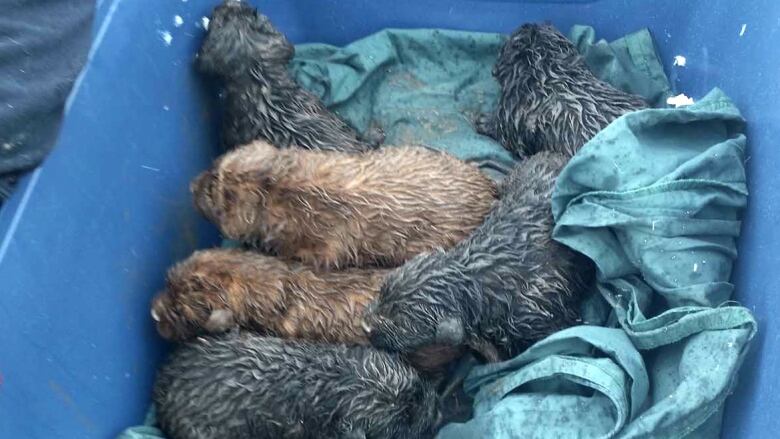AARCS rescues dozens of dogs, cats from rural dump
Rescued animals include several litters of puppies and kittens

The Alberta Animal Rescue Crew Society (AARCS) has rescued 88 dogs and cats in the last week, including 20 from a rural dump two hours south of Calgary.
AARCS was called to check on a couple of injured dogs at the dump on Sunday but discovered here were many more needing to be rescued.
Several litters of puppies and kittens are among the animals now being cared for by foster families and the shelter.
"It must have been either a place where local people would drop off unwanted animals, or a place where the animals were seeking out because maybe it was a good food source," said Katie Ayres with AARCS.
At the dump, rescuers found the animals covered in mud. The mother dog had set up a shelter for her puppies out of the garbage.
A typical week would see 15-25 animals taken in by the group, according to AARCS. The society currently has 362 cats and about 250 dogs in need of adoption.
It's unclear why there were so many animals in need of rescue in the last week, but Ayresbelievesit could be the cooler weather.
"When the weather changes and it starts to get colder more community members will start to notice that there's these animals out there who don't have homes," said Ayres.
The animals are currently being quarantined beforebeing spayed and neutered before they are ready for adoption in about five to six weeks.
"We do have a pretty full shelter, and we don't have enough fosters currently for the animals that we have," said Ayres. "So they're not placed in foster care.There's about half of the ones that are back there are ready to go."












_(720p).jpg)


 OFFICIAL HD MUSIC VIDEO.jpg)
.jpg)



























































































